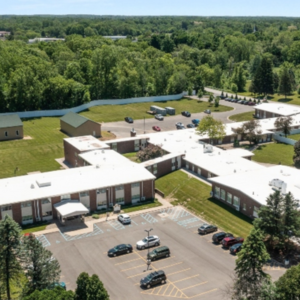Steven Tyler Long-Term Recovery Relapse – Why Does it Happen?

Opening up the dialogue about relapse/recurrence can help to diminish stigma.
In a series of articles, we heard last week that rock band Aerosmith have cancelled the first two months of their Los Vegas residency. The reason cited is that front-man, Steven Tyler, checked himself into rehab after more than a decade of sobriety. The star is said to have relapsed after taking pain medication for foot surgery.
Interestingly, whenever someone in the public eye relapses, it is natural to think that lifestyle might be the cause. The continuous barrage of late nights and the proximity to drugs and alcohol, for example. But Steven Tyler is in his 70s, and has maintained his lifestyle in recovery since 2009. Why did a relapse happen to him?
Why Does Long-Term Recovery Relapse Happen?
When a celebrity shines a light on the topic of addiction or relapse, it behooves us to join the conversation. One of the most frightening aspects of long-term recovery is hearing about a falter after so many years of sobriety. Consequently, the relapse of a rock star is a suitable time to remind people that addiction is a chronic, progressive disease. Continued disease management is critical to lasting recovery. Also critical, is an alert support system.
“We know that relapses are not magical events. There are multiple warning signs along way. This is a fortunate fact, as we have opportunities to intervene and avoid the possible event. We need to keep our eyes open and remain alert to the early signs of addiction relapse.” Carli Noffsinger, LMSW, CAADC, Sanford Family Program Facilitator
Sanford Behavioral Health Family Program Facilitator, Carli Noffsinger Gives the Following Relapse Tips:
Warning Signs of Relapse in Later Recovery
The “right conditions for relapse” in later recovery tend to be regular life events that come together with changes in attitudes and beliefs.
- Positive life events – new relationships, promotions, new home, children’s major accomplishments
- Negative life events – change in health status, loss of a loved one, ending a relationship
- Accomplishing goals and milestones in life, such as retirement
- Vacations
- Complacency – “My drug of use was alcohol, I’ll try marihuana.”
- Time spent with old faces and old places
- Unexpected exposure to substance of choice
- Major life changing events
Like any other chronic condition, substance use disorder (SUD) or addiction, is a relapsing disease. Just as those with diabetes may have a relapse of their symptoms, people in recovery may also return to using drugs or alcohol. In fact, the National Institute on Drug Abuse estimates that approximately 40 to 60% of people treated for SUDs will face a relapse. However, the stigma surrounding addiction also hinders our understanding of relapse or recurrence.
Opening up the dialogue about relapse/recurrence can help to diminish stigma. So, let’s talk about it! We do not presume to know Mr. Tyler’s circumstances, but with overdose deaths at an all-time high, it’s never been more important to learn how preparing for relapse can be used as a tool to prevent it.
For more information on relapse:
Warning Signs of Relapse: Early Recovery and Beyond
Relapse! Does Addiction Treatment Work?



